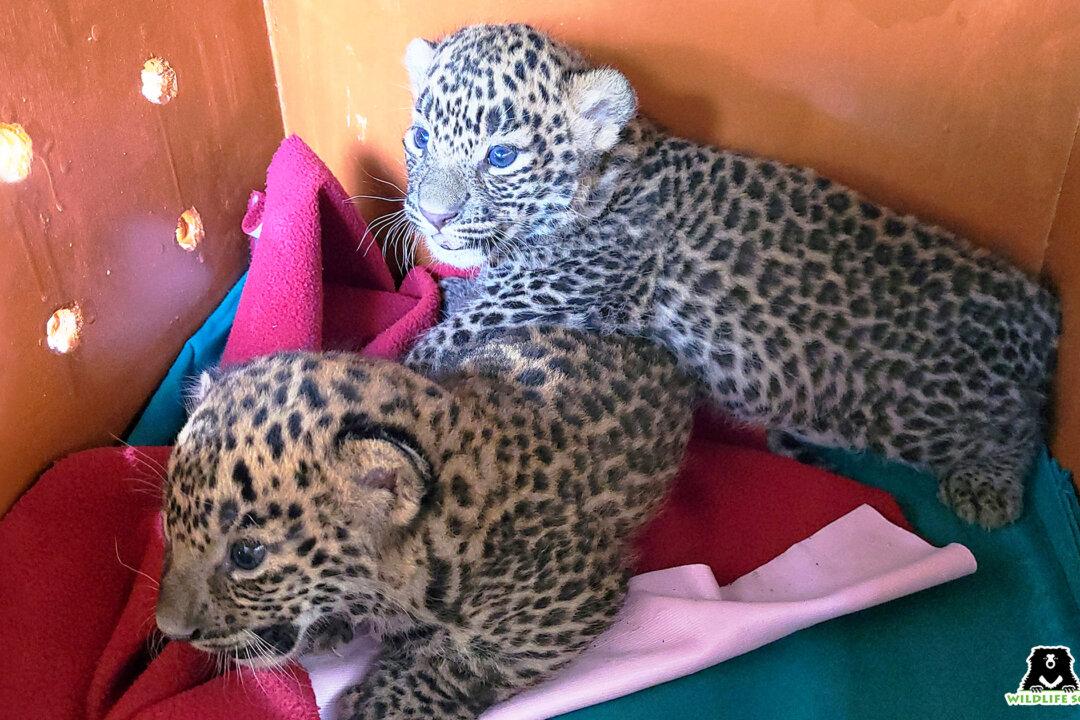A pair of leopard cubs found alone in a field by Indian sugarcane farmers have been successfully reunited with their mother. A hidden camera caught the moving moment on film.
The leopard cub siblings were discovered in the west-central Indian village of Nirgude in Junnar, Maharashtra, on Jan. 2, by farmers while they were harvesting sugarcane. They immediately reported their find to the Forest Department, who rushed to the site, and transported the cubs to conservation nonprofit Wildlife SOS’s Manikdoh Leopard Rescue Center for examination.





